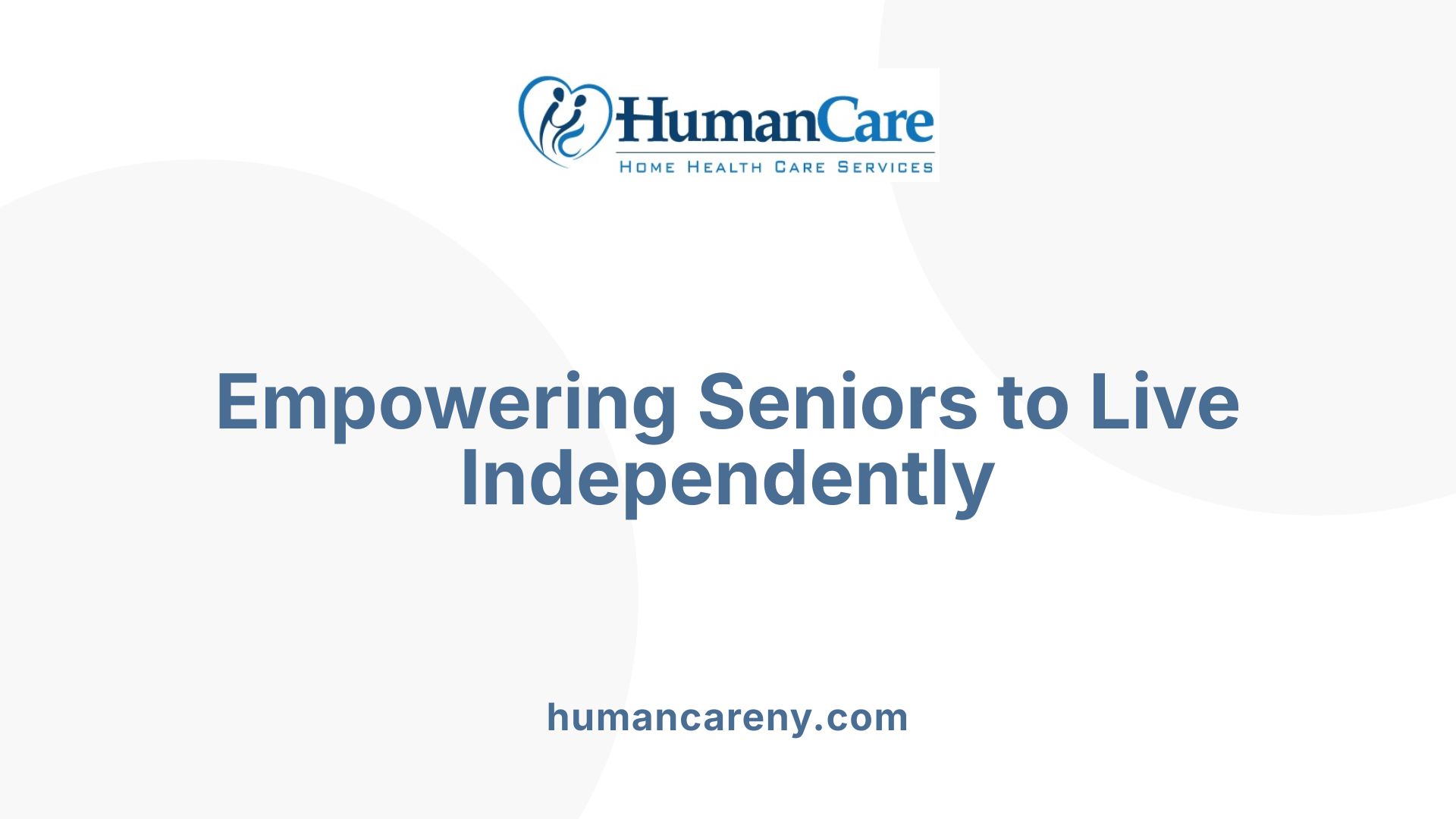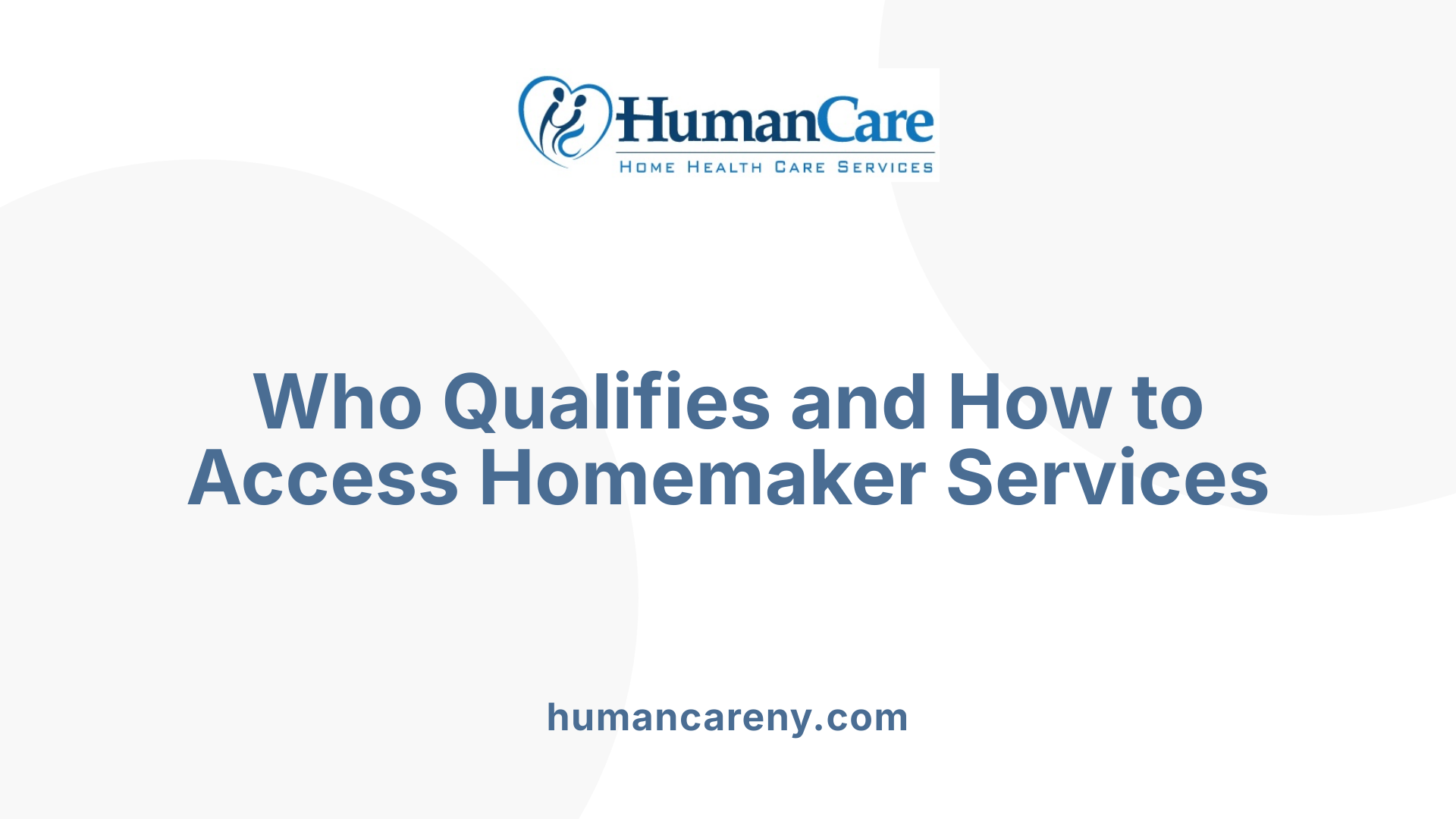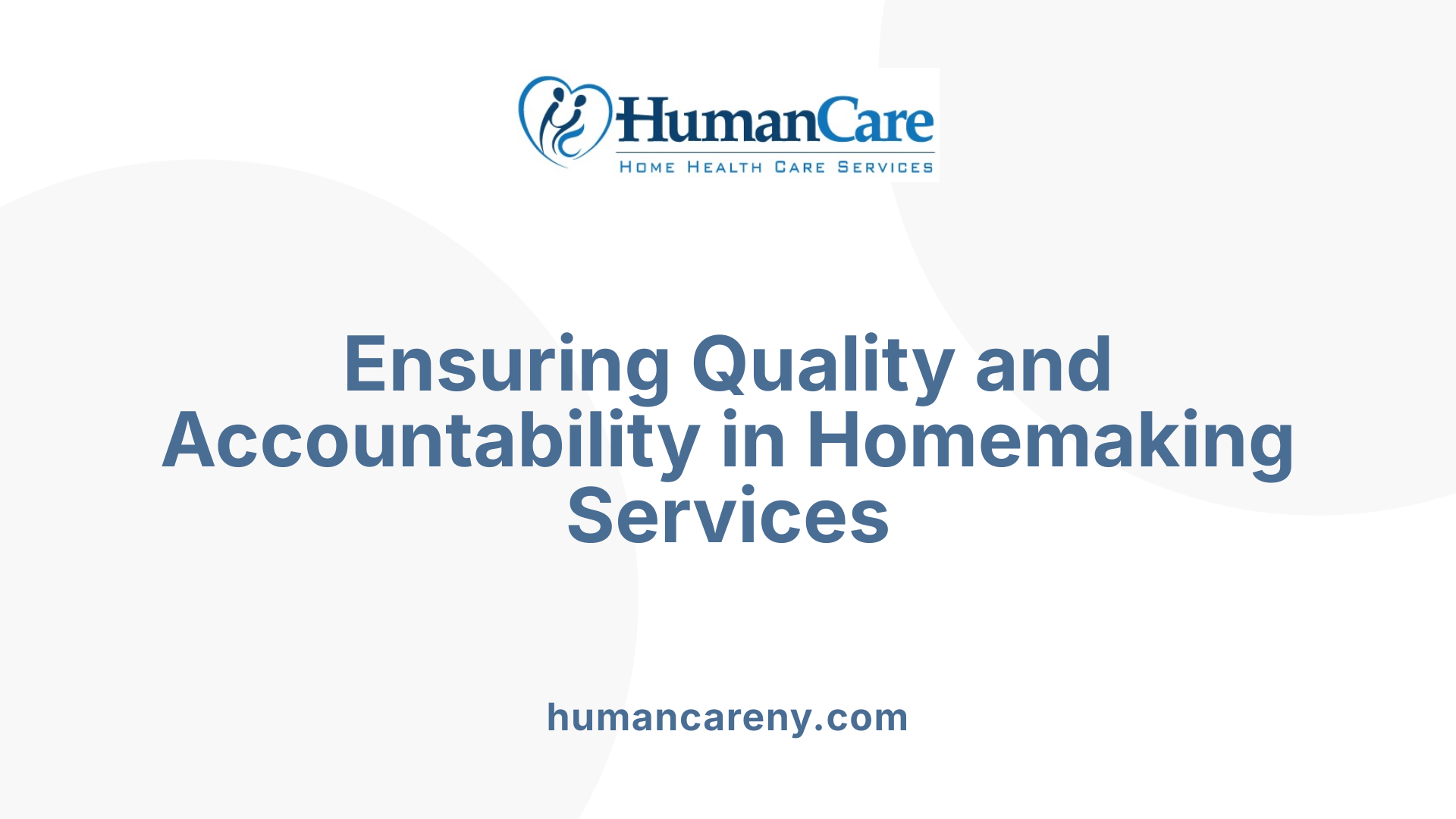Understanding the Role of Homemaking Services in Elder Care
As the population ages, maintaining independence and dignity for older adults becomes increasingly important. Homemaking services provide essential support to elderly individuals by assisting with personal care and daily tasks, enabling them to live safely and comfortably in their own homes. This article explores how homemaking services integrate non-medical assistance with emotional and social support to improve quality of life for seniors.
Scope and Nature of Homemaking Services
What Are Homemaking Services?
Homemaking services provide essential non-medical support to elderly and disabled individuals who want to maintain independence in their own homes. These services include household chores, meal preparation, medication reminders, and transportation assistance, all aimed at helping clients with daily living tasks without the need for institutional care.
What Personal Care Tasks Are Included?
The services typically cover activities that assist with personal care but do not require medical expertise. Examples include:
- Meal preparation and planning
- Light housekeeping
- Assistance with grooming and hygiene
- Companionship to reduce loneliness
- Medication reminders
- Support with transportation to essential appointments
Which Activities of Daily Living Does Homemaking Support?
Homemaking services often help clients manage activities of daily living (ADLs) such as bathing, dressing, grooming, using the toilet, eating, and mobility. These supports are vital for those who may find some tasks challenging due to age or disability.
How Are Homemaking Services Tailored?
Care plans are customized based on individual needs. Each client receives a personalized schedule and service mix ranging from temporary aid during recovery to long-term support. Homemakers receive training and adhere to ethical standards, ensuring privacy and respect for the client’s autonomy.
These flexible and client-centered homemaking services improve quality of life by promoting security, emotional well-being, and the ability to live independently at home.
Supporting Independence: Benefits of Homemaker Services

Enabling elderly to live independently at home
Homemaker services provide vital non-medical assistance such as household chores, meal preparation, and personal care, enabling older adults to maintain their independence at home. This personalized support allows seniors to comfortably continue their daily routines in familiar surroundings.
Preventing institutionalization
By addressing essential activities of daily living (ADLs) and offering safety measures like medication reminders and transportation assistance, homemaker services help delay or prevent the need for institutional care. Clients receive care tailored to their specific needs, promoting a safer and more manageable home environment.
Promoting emotional well-being and companionship
Beyond practical aid, homemakers provide companionship and social interaction, which significantly enhance emotional health. Regular social contact through homemaker visits aids in reducing feelings of isolation and promotes a greater sense of security and happiness.
Reducing loneliness and distress
Loneliness and emotional distress are common challenges among the elderly, but homemaker services address these by fostering meaningful human connections and offering support. This emotional support can improve overall quality of life and contributes to mental well-being.
Homemaker services thus play a comprehensive role in preserving the independence and emotional health of older adults, helping them live with dignity and comfort in their own homes.
Comprehensive Assistance: Beyond Household Chores
Medication reminders and management support
Homemaker services extend beyond basic household chores to help elderly individuals manage their medications effectively. Homemakers often provide medication reminders, ensuring clients take their prescriptions on time, which is vital for maintaining health and preventing complications.
Transportation assistance for errands and appointments
Transportation is another critical support service. Homemakers and community programs offer rides to medical appointments, pharmacies, and essential errands. These services address mobility challenges and help seniors maintain independence without relying solely on family members.
Meal preparation and home-delivered meal coordination
Nutrition plays a crucial role in elderly care. Homemaker services include meal preparation tailored to dietary needs and preferences. Additionally, programs like home-delivered meals (e.g., Meals on Wheels) ensure seniors receive nutritious food even if leaving home is difficult, supporting overall health and well-being.
Emergency response systems and fall prevention
Safety is paramount for those living alone. Personal emergency response systems and fall prevention devices are integral components of in-home care, offering immediate assistance during emergencies. These systems help reduce risks and provide peace of mind to both seniors and their families.
These comprehensive services are typically customized to fit each individual's needs, improving quality of life by promoting independence, security, and emotional well-being.
Integration with Community and Government Programs

Older Americans Act and community-based services
The Older Americans Act (OAA) stands as a foundational support system, providing a spectrum of community-based services for older adults and their families. These services include homemaker assistance, home-delivered meals, personal emergency response systems, and transportation, all designed to help elderly individuals maintain their independence and quality of life within their homes. The OAA encourages voluntary contributions but imposes no strict income or asset limits for eligibility, mainly serving those aged 60 and above.
Role of Area Agencies on Aging
Local implementation of OAA services is conducted through Area Agencies on Aging (AAAs), such as those in Indiana. These agencies emphasize tailor-made community support, managing programs that assist older adults with daily living activities and providing homemaker services. By operating at a local level, AAAs can customize care plans according to the unique needs of each individual, ensuring effective and compassionate service delivery.
Family Caregiver Program and caregiver support
Complementing the OAA’s resources is the Family Caregiver Program, which extends critical aid to informal caregivers—often family members—who provide ongoing personal care. This program offers respite care, counseling, support groups, and supplemental services to reduce caregiver burden and promote sustained caregiving capacity. Through these support measures, family caregivers can continue their roles with enhanced emotional and practical assistance.
Consumer-Directed Personal Assistance Programs and Medicaid involvement
Consumer-Directed Personal Assistance Programs (CDPAP) elevate elder care by granting consumers greater control over their choice of caregivers, including family members or friends. These programs, frequently supported by Medicaid, allow more personalized and flexible care options beyond agency-provided services. However, federal audits continue to ensure compliance and integrity within these programs to prevent ineligible payments or regulatory breaches, safeguarding quality care for participants.
| Program or Agency | Services Provided | Key Features & Impact |
|---|---|---|
| Older Americans Act (OAA) | Homemaker services, meals, transportation | Broad eligibility, community-focused |
| Area Agencies on Aging (AAAs) | Local service administration, care planning | Personalized care, local community support |
| Family Caregiver Program | Respite, counseling, support for informal caregivers | Reduces caregiver stress, enhances support |
| Consumer-Directed Personal Assistance Programs (CDPAP) | Consumer-chosen caregivers, Medicaid-funded care | Consumer control, regulatory oversight |
Eligibility, Access, and Funding Sources

Age and Disability Eligibility Criteria
Eligibility for homemaker and related elderly services typically requires individuals to be age 60 or older. In some cases, eligibility extends to family members of older adults or people with disabilities. Notably, most programs do not impose income or asset limits, emphasizing accessibility over financial status. This inclusive approach ensures that many older individuals and their families can access supportive care regardless of economic standing.
Voluntary Contributions and Income Limits
Services offered under the Older Americans Act, including homemaker assistance, often operate on a model of voluntary contributions rather than mandatory fees. This means participants may be encouraged, but not required, to make financial contributions since there are no strict income limits affecting service eligibility. This voluntary framework supports continued service access without financial barriers for many seniors.
Medicaid, Medicare, and Private Insurance Coverage Considerations
Funding for homemaker and home health services varies across programs and insurance types. Medicare typically does not cover homemaker services unless they are part of a broader, medically necessary home health care plan. Medicaid offers some coverage that can differ by state, sometimes funding personal care aides or other supports. Private insurance generally has limited coverage for these services but may cover certain in-home health care and therapy services. Understanding these distinctions helps families plan for potential out-of-pocket expenses.
Cost Structures and Financial Assistance
Costs for homemaker and home health services often depend on service duration—short-term or long-term—and are usually charged by the hour when care is paid privately. Some community programs or volunteer-based services provide meal delivery, companionship, or transportation assistance free or at low cost. Additional financial assistance may be available through state-funded programs or Medicaid waivers that support personal care and activities of daily living. It is important for families to explore these options proactively to manage care costs effectively.
Training, Ethical Standards, and Hiring Practices
Training Requirements for Homemakers and Aides
Homemakers and home care aides typically undergo specialized training to equip them with skills necessary for non-medical tasks such as household chores, meal preparation, and personal care activities. This training includes guidance on assisting with activities of daily living (ADLs), medication reminders, and transportation support. Agencies providing these services ensure caregivers are knowledgeable in both practical assistance and safety protocols.
Ethical Standards Including Client Privacy and Autonomy
Homemakers are required to adhere to strict ethical standards that emphasize respect for client privacy and autonomy. Maintaining confidentiality and empowering older adults to make decisions about their care are fundamental responsibilities. These standards help promote emotional well-being, security, and independence for clients receiving services.
Differences Between Agency-Employed and Direct-Hire Caregivers
Caregivers can be employed through licensed agencies or hired directly by clients or their families. Agency-employed caregivers usually complete background checks and training mandated by licensing authorities, and their employment is regulated to ensure quality standards. In contrast, direct hires—often family members or friends—may receive payment through Medicaid Consumer-Directed Personal Assistance Programs, provided they satisfy requirements such as background checks and caregiver training when applicable.
Regulatory Oversight and Complaint Resources
Programs establishing homemaker and personal care services are subject to regulatory oversight, including federal audits, especially concerning Medicaid-funded consumer-directed care. The Illinois Department of Public Health licenses home care agencies, while other state entities monitor service compliance and recipient safety. Individuals can access resources and contact points to report complaints about in-home care services, ensuring accountability and continuous quality improvement in elderly care.
Supporting Caregivers: Respite and Supplemental Services
What is respite care and how does it support primary caregivers?
Respite care offers short-term relief for primary caregivers of elderly individuals. It allows caregivers to take breaks from their demanding roles, reducing burnout and stress. Respite care can be provided through agencies, adult day care programs, or other facilities, often with costs covered by government programs or insurance plans.
How do counseling and support groups help informal caregivers?
Counseling services and support groups provide emotional support and practical advice to caregivers. These resources help caregivers manage the challenges of providing ongoing personal care, reducing feelings of isolation and emotional distress.
What supplemental personal care services are available?
Supplemental services include homemaker assistance with tasks like meal preparation, household chores, personal care, medication reminders, and transportation. These services are tailored to the individual's needs and aim to help clients maintain independence and improve their quality of life.
What role do professional geriatric and mental health services play?
In-home professional services such as geriatric care managers and mental health professionals support both older adults and their caregivers. They assist with care planning, provide emotional support, and help manage complex medical and social needs. These services are usually paid privately or covered by specific insurance plans, enhancing the overall caregiving experience.
Quality Assurance and Program Oversight

How Are Medicaid and Personal Assistance Programs Audited?
Federal and state governments actively conduct audits of Medicaid payments for consumer-directed personal assistance programs. These audits review compliance with federal and state regulations to ensure that the programs operate correctly and funds are properly spent.
What Vulnerabilities Have Been Identified?
Investigations by the Office of Inspector General (OIG) have uncovered issues such as payments made to ineligible beneficiaries and failures to comply with program rules. Improper payments highlight vulnerabilities where financial resources may be misused or diverted.
How Do Consumer Protections and Compliance Measures Work?
Oversight mechanisms include strict compliance requirements, background checks on paid caregivers, and options for consumers to select family members or friends as providers under Medicaid Consumer-Directed Personal Assistance Programs. These safeguards empower consumers while ensuring that care providers meet quality standards.
What Is the Impact of Oversight on Service Quality and Fraud Prevention?
Active regulation and audits improve the reliability and quality of homemaker and personal care services by preventing fraud and abuse. They help maintain trust in these programs, protect vulnerable elderly individuals, and ensure that public funds enhance independent living and well-being effectively.
Conclusion: Empowering Seniors Through Homemaking Services
Homemaking services play an indispensable role in supporting the personal care needs of elderly individuals, enabling them to maintain independence and improve their overall quality of life. Through tailored assistance with daily living activities, emotional companionship, and integration with community-based programs, these services address a broad spectrum of needs. Continued training, ethical standards, and regulatory oversight ensure that services remain safe, respectful, and effective. As demand grows, homemaking services stand as a vital resource in the evolving landscape of elder care, providing seniors and their families with confidence and peace of mind.



